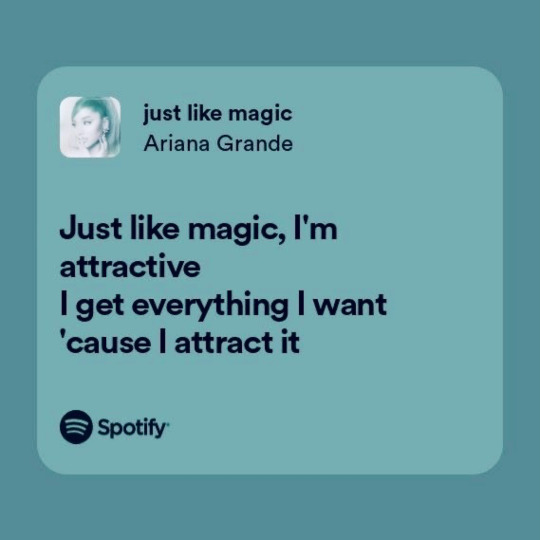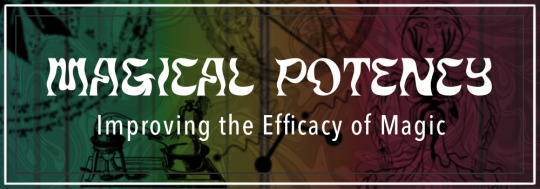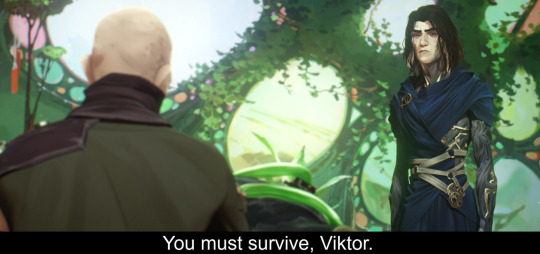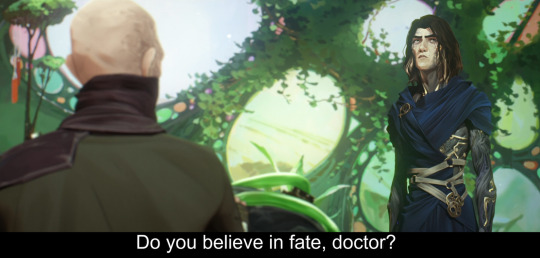#Intention vs. Outcome
Explore tagged Tumblr posts
Text
Moral Luck and Merit
The concept of moral luck challenges our conventional understanding of moral responsibility and merit. It raises questions about how much control individuals have over their actions and outcomes, and consequently, how much credit or blame they deserve. In this exploration, we will delve into the nuances of moral luck and its impact on our assessment of merit.
Understanding Moral Luck
Definition of Moral Luck:
Concept: Moral luck refers to situations where the moral judgment of an individual is influenced by factors beyond their control.
Types: Philosopher Thomas Nagel identifies different types of moral luck:
Resultant Luck: Luck in the way one's actions turn out.
Circumstantial Luck: Luck in the situations one faces.
Constitutive Luck: Luck in who one is, including one's temperament and inclinations.
Causal Luck: Luck in how one’s actions are determined by prior events.
Moral Luck in Practice:
Example: Two drivers who both run a red light but only one hits a pedestrian. The difference in outcomes, due to resultant luck, affects how we judge each driver morally.
The Concept of Merit
Definition of Merit:
Concept: Merit involves deservingness of praise, reward, blame, or punishment based on one's actions or qualities.
Basis: Merit is typically based on factors such as effort, intention, and outcomes.
Merit in Ethical Theory:
Kantian Ethics: Emphasizes intention and adherence to duty rather than outcomes.
Utilitarianism: Focuses on the outcomes and the overall utility generated by actions.
The Interplay Between Moral Luck and Merit
Impact of Moral Luck on Merit:
Resultant Luck: Alters the outcomes of actions, affecting the perception of merit based on those outcomes. For example, a doctor’s merit might be judged differently based on the success or failure of a surgery, even if both doctors performed equally well.
Circumstantial Luck: Affects the situations individuals encounter, which can lead to different opportunities for meritorious actions. For instance, a person born into a stable environment might have more opportunities to develop virtues than someone born into adverse conditions.
Constitutive Luck: Involves traits and dispositions that are beyond an individual's control, impacting their ability to act meritoriously. A person’s natural temperament might make it easier or harder for them to act morally.
Challenges to Traditional Views of Merit:
Intention vs. Outcome: Moral luck complicates the assessment of merit by introducing factors outside of one’s control. Should merit be based solely on intentions or also on the outcomes, even if those outcomes are influenced by luck?
Equity in Judgment: If merit is influenced by luck, it raises questions about fairness in moral and social evaluations. Can we fairly reward or blame individuals for actions significantly shaped by luck?
Theoretical Perspectives on Moral Luck and Merit
Nagel’s View on Moral Luck:
Argument: Thomas Nagel argues that moral luck undermines the idea that we can be fully morally responsible for our actions since so much is influenced by factors beyond our control.
Kantian Ethics:
Counterargument: Kantian ethics emphasizes that moral worth is based on the intention behind actions rather than their outcomes, potentially sidestepping the issue of moral luck.
Virtue Ethics:
Perspective: Virtue ethics focuses on character and the development of virtuous traits, acknowledging that some aspects of character are influenced by luck but still striving for personal moral growth.
The relationship between moral luck and merit is complex and raises significant questions about our understanding of moral responsibility and deservingness. While moral luck challenges the fairness of attributing merit based on outcomes influenced by uncontrollable factors, various ethical theories offer different approaches to reconciling this tension. Understanding this interplay is crucial for developing a nuanced perspective on moral judgment and ethical evaluation.
#philosophy#epistemology#knowledge#learning#education#chatgpt#ethics#Moral Luck#Merit#Ethical Theory#Kantian Ethics#Utilitarianism#Virtue Ethics#Moral Responsibility#Thomas Nagel#Intention vs. Outcome#Constitutive Luck#Circumstantial Luck#Resultant Luck
1 note
·
View note
Text

Techno and ghostbur. When your dead frend only remembers the ‘good times’ you had, and they come to hunt you about it constantly.
#my art#fanart#technoblade#technoblade fanart#mcyt fanart#can be /p or /r i think#but i’m gonna tag as#mcyt shipping#just in case#ghostbur#techbur#it’s about their caracters#i don’t see them as family in this#someting about ghostbur causing techno’s death/entrapment by the butcher army in the dream smp still has me insane#ghosbur was trying to be frendly and helpfull.. someting someting about intent vs outcome#don’t come at me with wilbur drama. this isn’t about thim
109 notes
·
View notes
Text
What does it say about me that when there's an emotional conflict in a fanfic like 85% of the time I think that the one who ends up groveling for forgiveness was actually the one who deserved the bigger apology?
#or like when characters have to make long speeches about ''taking accountability'' and apologizing over genuine misunderstandings#like what??? they didn't even do what they're apologizing for???#anyway my current hypotheses for this are a) (the mean assumption) a lack of social skills in chronically online fandom people#who think that reciting therapy pamphlets is the best way to communicate and b) (the nicer assumption) me and the authors have different#moral views on the importance of outcome vs intent where i prioritize intent (it was a misunderstanding) and they prioritize the#outcome (someone was hurt)
4 notes
·
View notes
Text
𓇼∘˚ INNERMAN VS OUTERMAN·˚𓆉 ༘₊·



helping you understand pure consciousness better
𓇼∘˚ PART I | UNDERSTANDING
What is the difference between the outerman and the innerman you may ask. Well the outerman is the body that you are experiencing the 3D in while your innerman is the real you. Your innerman doesn’t experience time or the 3D which is why when you want something you immediately get it, your innerman experiences your desires immediately because creation is finished.
So you have an intent to induce the void state? The outcome where you induce the void state has been created and it is finished, set in stone if you’re willing to persist in it. So it does not matter what the outerman sees, whether the outerman got symptoms and fell asleep, whether the outerman is still seeing unfavourable circumstances after an “unsuccessful” night. The Innerman induced pure consciousness the second you wanted to because the barriers of time and the 3D are non existent to your innerman. And your innerman is YOU, so YOU don’t experience time or the 3D, it isn’t real. YOU induce pure consciousness when you intend to no matter what the 3D is showing. You’ve induced pure consciousness and you’re living your dream life, no matter what you see through the experience of your outerman.
Take the outerman experience with a pinch of salt or even less than that because it isn’t real. Why are you relying on what the outerman experiences (3D) to tell your innerman (YOU, the operant) power what is real and what’s not. As soon as you realise that you already have your desires and that you’ve already induced pure consciousness, it will materialise in the 3D as a by product. But that shouldn’t matter. What your outerman self experience is a dormant malleable mirror, your innerman is what is real.
So when laying in position forcing yourself to relax or getting frustrated because everyone says it’s sooo easy and you “just can’t do it”, remember creation is finished for your innerman which is the real you. You don’t need to worry about if you will induce the void state or not because you already have. Why would you speculate the outcome of chapter 6 in a book when you’re on chapter 8? why are you waiting to read chapter 6 in a book when you already have?Stop doing your meditations wondering when it’s going to work, it already has worked. You ARE pure consciousness.
·˚𓆉 ༘₊· PART II | OUTERMAN vs INNERMAN
OUTERMAN: *has an experience in the 3D where they fell asleep while attempting to induce*
INNERMAN: *induced pure consciousness the second an intention was set*
OUTERMAN: *experiences waking back up in unfavourable circumstances*
INNERMAN: *the 3D doesn’t exist so neither do circumstance, living the dream life*
OUTERMAN: *panicked because they have given themselves a deadline to induce the void state and get their dream life and time is running out*
INNERMAN: *doesn’t experience time, everything is in the now and they are experiencing all desires now*
OUTERMAN: *believes they need to go on a “void journey” to induce pure consciousness with long lasting challenges to “reprogram subconscious”*
INNERMAN: *creation is finished, there is nothing that needs to be done, the shift has already happened, no shifting needed*
your outerman self doesn’t always have to struggle you can train it to align with your true self = training the 3d to align with the 4D
Remember you aren’t gaslighting yourself or being delusional, this is fact. You induced pure consciousness no matter what you see.
That unfavourable life you live is just what the VR headset is showing you, in order to take the VR goggles off you need to realise who you are!!
🪬 YOU ARE YOUR INNERMAN, THE 3D AND TIME ARE NOTHING



#salemlunaa#shiftblr#reality shifting#shifting#permashifting#void state#loa#law of assumption#success story#the void#void concept#respawning#void#void state tips#the void state#voidstate#god state#i am state#4d reality#pure consciousness#shifting consciousness#shifting awareness#loablr#master manifestor#manifestation
730 notes
·
View notes
Text
Rituals vs. Spell work: Understanding the Difference
When delving into the mystical realms of magick, it’s essential to grasp the distinctions between rituals and spell work. Let me illuminate these concepts:
Magical Practices (Spell work):
Definition: These are simple workings—everyday magics that don’t necessarily involve elaborate rituals.
Duration: They can take seconds to a couple of hours.
Intent: They have an intention, an end goal, and a magical act.
Examples: Taking a magical bath, divination (like tarot), reciting a spell, meditating, or lighting a candle.
Ritualistic Level: Not very ritualistic; no casting of circles or complex spells.
Rituals:
Definition: More elaborate magical works with structure and specific components.
Duration: Longer than practices due to their complexity.
Purpose: Assist in walking between worlds, raising significant energy.
Components: Often involve casting a circle, calling quarters/elements, and invoking spirits or deities.
Examples: Full moon rituals, spell bottles, transformative magics, protection spells.
Spells:
Definition: Spells consist of words or phrases with a specific intention.
Components: Usually involve words (or emojis) and focus on a desired outcome.
Purpose: To signify, relate, or talk—directing energy toward a goal.
#spellwork#magick#tarot cards#alchemy#spiritualawareness#spiritualhealing#youtube#mary sibley#altar#vegaslocals#spells#witch#witchblr#spellcasting#witchcraft#rituals#folk magic#paganism#pagan#easter
1K notes
·
View notes
Text
I've seen a couple of takes on what Varric is in Veilguard, what Solas's role is in 'keeping Varric alive' and I love to read people's interpretation of it, so I thought I'd throw my own two cents on the table.

I never saw Varric as a spirit or something Solas created/ manipulated through the blood connection. Varric was something Rook constructed. The only thing Solas did was to make Rook completely forget he was dead. Turn their confusion into denial, both through the use of blood magic (literally reshape their memory) and through lies. The rest was Rook. This is very important to me because it's a key element of the story: a story about guilt, about the strength you need to overcome it lest it cripples you. Varric's presence for Rook is about traumatic events that you just push out of your conscious mind because guilt and grief, and emotions in general, can be strong enough to take you out of commission. It's a recurring theme in the game - as an example, Lucanis in his quest is literally paralyzed because he doesn't want to face the outcomes of the choices he needs to make. It feels well woven into the story how Varric's presence is something Rook made up.
He's the voice in their head that they talk to when they panic and don't know what to do. As an aside, the absolute contrast between the fact that the dialogue options when dealing with the companions' problems are always reassuring vs. the doubt and exhaustion in Rook's voice when they're talking to Varric is striking! Varric is the conviction that keeps them going. It's what Rook thinks Varric would have said. So in a way EVERYTHING that Varric says to Rook is what Rook says to themselves. It's why the last thing you tell Varric, at the end of the proper goodbye, is 'I know where to find you when I need you': because it shows acceptance, and it shows that Varric will always be the voice in Rook's head that will provide reassurance. It's what people go through: grief, doubt, and finding answers within themselves. It's not uncommon for throughs in your head (both negative and positive) to take on the voices of people in your life. For me, in this bittersweet instance, it's all Rook. Moving on to Solas and how he plays into all of this. I don't think there was any good intent behind Solas's manipulation. There was no benevolence, there was just selfishness, but in the most painful way. The only heartfelt thing Solas did was when he said to Rook 'Tell Varric I am sorry'. That line was so twisted and beautiful because it had two edges: on one side it was manipulative, to check that Rook still believed the lie and to continue building on it, and on the other, it was pity and selfishness. He didn't say that for Rook or Varric. Not really. He said it for himself. Because the only Varric that was still alive was in Rook's head. So if Rook's version of Varric accepts his apology, it gives him a bit of comfort, forgiveness, and absolves him of murdering his friend. That line is SO, SO selfish and intricate. It's beautiful! Such fantastic writing.
The only reason Solas played with Rook's mind in this manner is because he thought it could chain Rook to his prison through their own grief and guilt. That was his plan because his own shortcomings meant that he could only perceive Rook as a mirror of himself. Pridefully, he couldn't see Rook through any other lens. As a result, he is fully convinced that once Rook realizes Varric is dead, after so much time spent in denial, it will break them and keep them trapped in there forever. He allowed Rook to forget his death so he could drown them in so much guilt that his prison would mold itself to them. Solas thought Rook is just like him. That his pain, grief and loneliness are justified punishments, that they are absolutes. He was convinced there was no way of interacting with these emotions other than his. And Rook proved him wrong. I can go as far as saying it's the proof that Solas has been looking for for the past 10 years. That he is wrong and that there IS another way. Rook outgrowing their guilt and self-pity for the benefit of others: that is the first real crack in Solas's own prison.
I could talk endlessly about how the game deals so fantastically with the motifs of guilt, grief, and choice, with the ideas of using others as mirrors of ourselves, but I think this at least sums up how I feel about the whole Rook - Varric - Solas dynamic.
#dragon age#veilguard spoilers#varric tethras#solas#dragon age rook#dragon age the veilguard#datv#da: the veilguard#dragon age meta#dragon age lore#textpost
288 notes
·
View notes
Text
the dichotomy of fate vs free will, the nature of choice, and the concept of destiny can actually be explained fairly well by the unus annus trolley problem

you see inherently there IS a choice. one CAN pull the lever and alter the course of the trolley from its current path. however, this would mean going against the express purpose of the Unus Annus youtube channel as set out from the very beginning-- it was created to have a natural but predetermined end. one can choose to alter the course of the trolley, but doing so would be an arguably immoral action since it would be altering fate in a way that is contrary to the narrative intention.
letting the trolley run its course, and not choosing to pull the lever, may seem like you are then letting Mark and Ethan be crushed and killed. however, this is where the second half of the meme is important. Ethan may be sleeping peacefully and has no idea that he is on the trolley tracks, that there is danger, and that there is a lever that could divert the danger but in an 'unnatural' way.
Mark, though, is not only aware that he is on the tracks in the path of the oncoming trolley but also entirely aware that there is a lever that someone can make the choice to pull...and doesn't WANT the lever to be pulled. Despite knowing the trolley will inevitably hit him unless he moves or someone pulls the lever to alter things from their natural course, he chooses to stay because he believes his body can handle it.
The entire question is...do you have enough belief in Mark's ability to handle the oncoming trolley and weather the blow of the damage, thus both protecting the unaware, asleep Ethan and keeping the trolley from being diverted away against the rules of Unus Annus? Do you trust that things will work out and Mark's body can handle it? Or would you rather choose to alter the course yourself, but go against the natural order of the current course?
There is of course a choice, there has to be for the choice to be meaningful. And yet, there is a very clear choice that is "immoral" because it saves something that was meant to live and die as designed. There is, arguably, a "moral" choice-- let the course of the trolley continue even knowing that it places Mark and Ethan on its destructive path, but stay in accordance with the intended plan of Unus Annus. By choosing to stay the course, the predestined, FATED path is set.
Those are the only two paths-- but as you can see, the third option that saves Mark and Ethan and honors the spirit of Unus Annus is to use your choice to not act and cede control, trusting that, genuinely, Mark isn't a masochist, and his body really CAN handle it. There is a choice made out of free will, but the best outcome results from choosing to 'just let it happen' and trust that it WILL, remarkably, all be ok.
That's right everyone, the meme really was a philosophical successor to the original trolley problem the whole time
#unus annus#markiplier#ethan nestor#crankgameplays#the ‘illusion of choice’ is the realization that while there is a genuine choice; you wouldn’t do anything differently#you would make the same choices every time even with many options#because you believe in the choices you made and wouldn’t change them
192 notes
·
View notes
Text
Not all Second-Language Speakers are Made Equal.
@waltzshouldbewriting asked:
Hello! I’m writing a story that features a character who’s first language is not English. He’s East African, specifically from Nairobi, Kenya, and is pretty fluent in English but it’s not his primary language, and he grew up speaking Swahili first. I’m struggling to figure out if it’s appropriate or in character to show him forgetting English words or grammar. From what I’ve researched, English is commonly spoken in Nairobi, but it wouldn’t be what was most spoken in his home. For context, this is an action/superhero type story, so he (and other characters) are often getting tired, stressed, and emotional. He also speaks more than two languages, so it makes sense to me that it would be easier to get confused, especially in a language that wasn’t his first. But I’m worried about ending up into stereotypes or tropes. For additional context: I’m monolingual, I’ve tried to learn a second language and it’s hard. A lot of how I’m approaching this comes from my own challenges correctly speaking my own, first and only language.
Diversity in Second-Language English
You seem to have an underlying assumption that second language acquisition happens the same for everyone.
The way your character speaks English depends on so many unknown factors:
Where does your story take place? You mention other characters; are they also Kenyan, or are they all from different countries?
Assuming the setting is not Kenya, is English the dominant language of your setting?
How long has your character lived in Kenya vs. where he is now?
What are his parents’ occupations?
What level of schooling did he reach in Nairobi before emigrating?
What type of school(s) did he go to, public or private? Private is more likely than you think.
Did his schooling follow the national curriculum structure or a British one? Depends on school type and time period.
Does he have familiarity with Kenyan English, or only the British English taught in school?
Is this a contemporary setting with internet and social media?
I bring up this list not with the expectation that you should have had all of this in your ask, but to show you that second language acquisition of English, postcolonial global English acquisition in particular, is complex.
My wording is also intentional: the way your character speaks English. To me, exploring how his background affects what his English specifically looks like is far more culturally interesting to me than deciding whether it makes him Good or Bad at the language.
L2 Acquisition and Fluency
But let’s talk about fluency anyway: how expressive the individual is in this language, and adherence to fundamental structural rules of the language.
Fun fact: Japanese is my first language. The language I’m more fluent in today? English. Don’t assume that an ESL individual will be less fluent in English compared to their L1 counterparts on the basis that 1) it’s their second language, or 2) they don’t speak English at home.
There’s even a word for this—circumstantial bilingualism, where a second language is acquired by necessity due to an individual’s environment. The mechanisms of learning and outcomes are completely different.
You said you tried learning a second language and it was hard. You cannot compare circumstantial bilingualism to a monolingual speaker’s attempts to electively learn a second language.
Motivations?
I understand that your motivation for giving this character difficulties with English is your own personal experience. However, there are completely different social factors at play.
The judgments made towards a native speaker forgetting words or using grammar differently are rooted in ableism and classism (that the speaker must be poor, uneducated, or unintelligent). That alone is a hefty subject to cover. And I trust you to be able to cover that!
But on top of that, for a second language speaker, it’s racism and xenophobia, which often lend themselves to their own ableist or classist assumptions (that those of the speaker’s race/ethnicity must be collectively unintelligent, that they are uneducated or low class due to the occupations where they could find work, or conversely that they are snobby and isolationist and can't be bothered to learn a new language). Intersections, intersections.
If you want to explore your experiences in your writing, give a monolingual English speaker in your cast a learning disability or some other difficulty learning language, whatever you most relate with. And sure, multilingual folks can occasionally forget words like anyone else does, or think of a word in one language and take a second to come up with it in the other language. But do not assume that multilinguals, immigrants, or multiethnic individuals inherently struggle with English or with multiple languages just because you do.
~ Rina
#asks#accents#speech#language#languages#bilingual#bilingualism#ESL#immigration#east africa#african#writeblr
2K notes
·
View notes
Text
To the ‘themes I am picking up on in Veilguard’ list, let's go ahead and add what I have a sneaking suspicion will actually turn out to be The theme:
— the world has changed and can never be as it was again.
— I have been changed and can never be who I was again.
— in this simple unavoidable truth there is endless grief and endless hope.
And I… may be getting a bit emotional about it haha. Let me show my work a bit:
if da:o is a game about people who are already dead or half ghosts in some form (through societal forces, psychologically, functionally, literally, in body, through the joining etc.) coming together anyway to save the world from being swallowed by total nihilism and despair (symbolized by the blight) through the power of love and friendship and also this sword/potential heroic sacrifice that I found, da2 is a game about people who have lost their homes and been set adrift finding and building new homes in each other (while completely failing to save the world. also through the power of love and friendship. as well as years of petty bickering <3 we must imagine kirkwall if not happy then worth having been because the love was there the love was there and that's the only sanctifying force we can ever have in this doomed world and city of ours), and da:i is a game about old stabilizing-but-unjust comfortable lies vs. disruptive but potentially liberating uncomfortable truths, and the power of friendship to help us distinguish the one from the other and navigate through them...
folks… I'm starting to think that veilguard might be a game specifically about moving towards recovery and acceptance after trauma — about how even in this flawed, severed, scarred state, what is here right now is worth loving and worth caring for. even in an imperfect and impermanent world and self, there is worth and joy. and of course the first real tragedy — and threat — of Solas is that he just cannot find it in himself to accept this and move on, to let go of what was, the regret won’t let him go or he won’t let go of it. which means that even though on the surface it’s Elgar’nan and Ghilan’nain (and the will to subjugate and violate they represent) who are the main villains, the real antagonistic force in this story beneath that is the Dread Wolf’s despair. A despair Rook must make an answer to by the end of the game, one way or another, compassionately or with righteous fury, triumphant or pyrrhic.
The world will change again and again and so will you — BUT the crucial element is that so will everyone else who exists along with you, you are fundamentally not alone in this existential truth. all we’ll ever have is each other and my god that is plenty, my god that is enough!!! Which is the second thing Solas just can’t accept, he keeps himself separate and completely alone out of an awful mix of fear and pride and feeling himself unworthy of anything else. Rook and the player want to save the world of Thedas because it’s where everyone we love lives, Solas wants to go back to the past because that’s the only neighbourhood where he can still visit those he loved — and the person he himself was, before. A very sympathetic and human instinct/trap to fall into when touched by trauma, I think, if only it wasn’t backed by godlike power, a fundamentally oppositional personality, and a catastrophic lack of therapy to make it literally everyone else’s problem too lol. It’s varric and solas’ banter about the man on the island and where meaning in a life comes from all over again, writ large and with detail work — and the added idea of ‘what if there are also other islands out there, though. With other people on them that you could find if you reach for each other’. Rook with the best of intentions has to make choices to which there are no perfect outcomes and live with what happens — and not cut themselves off from everyone else around them even when there is regret or shame. You get back up every day and you make a life with other people doing the same and you do your best, and that’s the only victory this world will give you. In the end, that is more than enough, that is essential. And I um. I love that. So much. It’s why some of the writing clumsiness on top can’t hurt me because this thematic spine is so solid and so beautiful to me. It’s DA2 all over again that way for me personally — I forgive this story for what it isn’t and couldn’t be, and I love it with my whole stupid open heart for what it actually is. Thank you for coming to my TED-talk and goodbye etc.
(For my fellow TLT heads out there — you know what this story is reminding me of most of all, actually? It has some big Nona the Ninth vibes down there in the deep. It’s about… the horror and unspeakable beauty that can only be found in liminality, and the role of love in making that basic fact of existence bearable. And also even more unbearable at the same time. I'm so sorry.)
#I told you all I was going to be extremely myself about this. I suppose we all hoped I was joking. even while knowing I was not#dragon age#dragon age: the veilguard spoilers#dragon age spoilers#dragon age: the veilguard#dragon age meta#solas#varric tethras#anyway. at the end of the day and despite everything varric won the 'I told you so chuckles' rights over solas in this philosophical debate#and isn't that enough in a way. I think so. the world and the story of the world is his legacy. people get to keep telling it#I want to say so much about how each of the companions play into the different aspects of this theme but I should uh#probably finish the game properly first haha#guys I literally opened my eyes this morning and wrote out most of this before even getting up. the pressure cooker brain is back#the lone brain cell in here boileth over with dragon age feels & thoughts#very little sends me deranged quite like this series I'm afraid. I'm just still so relieved that even if this story isn't for everyone.#it is for me. thank god. I needed it
356 notes
·
View notes
Text

Chiefs vs Bills | Kansas City, MO | January 26, 2025
Louis Vuitton 'Monogram Jacquard Knit Jacket' - $5,000.00 Louis Vuitton 'LV Spark Beanie' - $550.00 Steven Battelle 'Ancient Coin Necklace' - price varies Louis Vuitton 'Trunk Chain Wallet' - $2,850.00 Louis Vuitton 'Le Damier de Louis Vuitton Small Ring' - $3,950.00 Louis Vuitton 'Le Damier de Louis Vuitton Medium Bracelet' - $18,500.00 Cartier 'Panthère de Cartier Medium Watch Diamond' - $32,200.00 Louis Vuitton 'LV Medallion Gloves' - $495.00 Calzedonia '50 Denier Tights in Dark Red' - $15.00 Louis Vuitton 'Star Trail Ankle Boot' - $1,760.00
More monogram. Taylor appeared at the AFC Championship game wearing a literal head to toe look (mostly) by Louis Vuitton. Proving that sometimes it does have to be Louis V up in KC.
What I Learned From Those Two Years: Prior to the game I had wondered if last year’s championship outfit might be a playbook (pun intended) for today’s look - knowing that comparisons were bound to happen. I can see the similarities year over year in the oversized top, pleated mini skirt, tights, and boots combination. On the skirt, I’ve been told this is not the same skirt as last year, with thanks to the LV team for the confirmation, and is a slightly older one within the LV catalogue. However, it feels like a close enough of a callback to make the choice seem intentional. Perhaps a way of nodding to superstitions in sport with repeating “lucky” items to bring forth an optimal outcome. Whatever the reason, let’s say that it worked because the Chiefs defeated the Bills 32-29 and are - once again - headed to the Super Bowl.
When We First Met (Gala): But even without the other LV elements of this look, I clocked these boots right away. Why? Because Taylor has a pair of Star Trail boots that she has worn on two other occasions. The first was the night before the 2016 Met Gala. The second was while out to dinner with Travis in October 2023. After a lot of staring, I can confirm this pair of ‘Star Trails’ are an updated version - discernible by the slightly different finish and the cap toe detail being absent. One of Taylor’s style pillars has always been repetition, so I’ll give half points here given it’s a style we know she has in her closet and has repeated in the past. I can imagine this fresh pair from a later collection was meant to coordinate with the rest of the recent LV pulls.
Louis V up in KC: When it came to accessories, Louis Vuitton jewelry and bag felt like natural fits. However, knowing that Taylor has a LV watch in her collection that would have coordinated well with her head to toe (literal) branded ensemble feels noteworthy to me. The accessory that felt like it had the most story behind it was her necklace. Taylor has worn a number of vintage coin necklaces recently, including at a few Chiefs games. What immediately came to my mind was her 2024 season opener outfit which was also styled with a vintage, ancient bronze coin necklace. I imagine that something about it feels like embodying a fighting / warrior mindset to fit in with the “go fight win” of sports and the Gladiator ethos. Or else perhaps even a chic reference to a game day coin toss. I spoke with the designer, Steven, who confirmed that the face depicted on the coin, struck in 109-108BC during the Roman Republic, is the goddess Roma. Steven said, “[Roma] was believed to watch over the city’s citizens and protect them from harm, as well as being a fierce defender of Rome in war.” Steven said the necklace took approximately 1.5 days to create by Balinese goldsmith artisans with traditional handmaking techniqes. “The pendant was designed to highlight the coin and accent it in a classical manner,” he said. From an intentional styling perspective, there’s a lot of thought that goes into creating a cohesive and consistent storyline where every look “speaks” to one another to create a progression, but is distinct enough to stand as its own moment. Small callbacks like this (and the skirt - more on that later) demonstrate that thought well. I look forward to doing a full breakdown of this season’s looks (particularly in comparison to 2023-24’s season) when the final whistle blows. This artist uses real ancient coins in their work so every single piece is unique and different. Pictured above is what appears, to my eye, to be a close match to Taylor’s.
Photo by Jamie Squire via Getty Images
#taylor swift#kc chiefs#outerwear#accessory#jewelry#bag#shoe#louis vuitton#cartier#january 2025#calzedonia
225 notes
·
View notes
Text

[Title]: Magical Potency: Improving the Efficacy of Magic
Suggested Reading
Finding Balance Threshold Theory Correspondences Conceptualization Vs. Visualization Visualization: Effective Implementation Basics of Energy Work Basics of Spellcasting Spell Logs Intro to Gnosis Bias in Witchcraft The Subtle Body Axioms of Energy Work The Wellsource Energy Work & Spoon Theory Shadow Work: First Steps Intro to Grounding
Introduction
Magical potency refers to the efficacy and strength with which a spell is executed. This encompasses the accuracy with which the ritual is performed, the precision of the elements involved, and the intensity of focus and energy channeled into the endeavor. In simpler terms, it's about increasing the likelihood of a spell's success, assuming all other requisite and advantageous factors are adequately addressed.
The significance of magical potency cannot be overstated. For practitioners, the objective is not merely to perform rituals but to execute them in a way that yields measurable results. In the same manner that a scientist would aim for exactness and reliability in an experiment, a magical practitioner should aim for a high degree of potency in their workings. Achieving this standard is more than a matter of personal pride or skill; it is about the responsible wielding of one's abilities to bring about change. When potency is elevated, the outcomes are more predictable, thereby enhancing the reliability of the magical practice as a whole. Moreover, it minimizes the risk of unintended consequences, which can range from inconsequential to potentially hazardous.
The Magical Potency of a Vast Majority of Publications, From Tumblr to Books
Candle Magic
Candle magic serves as an excellent entry point for neophytes in magical practice. Its allure lies in its straightforward design and uncomplicated mechanics, making it accessible for beginners. However, the simplicity that makes it attractive also serves as its Achilles heel. A plethora of publications, ranging from social media posts to books, frequently omit crucial details that are indispensable for ensuring the spell's effectiveness. For instance, many resources neglect to delve into the nuances of "intent," often misconstrued as mere desire, even though it is actually one's personal truth. Furthermore, these publications have a tendency to reduce the complexity of the practice to mere lists of correspondences, thereby overlooking the intricate mechanics that govern how a spell functions. This dearth of comprehensive information is a disservice to newcomers who seek a robust understanding of the practice, and it impedes their ability to enhance the efficacy of their spells.
Candles & Twine "Cord Cutting"
Another practice that has gained considerable attention is the use of candles and twine for what is commonly referred to as "cord cutting." On the surface, this practice provides valuable insights into personal relationships. However, a closer examination reveals significant shortcomings. Most notably, the ritual fails to fulfill its purported function of severing emotional or psychic connections—what is commonly referred to as "cord cutting." Instead, it remains an exercise in symbolic action that lacks the mechanics necessary to bring about real change. The information provided in popular publications often restricts itself to symbolic associations, failing to offer a comprehensive guide to the mechanics or other vital elements that could make the practice genuinely effective. Consequently, any results are likely psychological in nature, rather than stemming from genuine magical activity, unless utilized as a tool for divination.
Sigil Magic
Sigil magic enjoys widespread popularity due to its accessibility and the relatively common understanding of its mechanics—albeit mainly within the framework of the psychological model. Its versatility is another strong suit, capable of serving as a supplementary element in various other magical practices. However, it's crucial to scrutinize the limitations of this method. The preponderance of popular sigil crafting techniques derives from, or modifies, the Spare method, which operates solely within the psychological model. In essence, this approach amounts to subconscious suggestion rather than authentic magical action. As a result, practitioners may find themselves constrained by a limited scope of magical efficacy. Furthermore, the lack of accessible information on alternative methodologies exacerbates the problem, leaving practitioners with a narrow, and sometimes misleading, understanding of what sigil magic can achieve. The ubiquity of this practice also means that misinformation and misinterpretation are rife, further muddying the waters for those seeking to deepen their understanding and improve their skills.

Increasing the Magical Potency of Common Practices
Candle Magic
To augment the efficacy of candle magic, a considerate approach is essential. First, it's crucial to identify the traditional symbolic associations of various elements involved in the spell and consider whether your own personal correspondences might be more effective. Next, identifying a central point of focus, or state of gnosis, can serve to concentrate your energy more efficiently. This focus should align with your own deeply-held beliefs or personal truths to maximize the spell's efficacy.
Another vital step involves contemplating the specific means by which the spell will manifest its effects. This doesn't merely involve wishing for a particular outcome, but rather planning out the logical steps and mechanisms that will make it happen. This also involves doing conscious energy work that goes beyond mere mental imagery. Instead, one should focus on manipulating energy via the subtle body and energetic senses, perhaps using breath work, gestures, and/or vocalizations as aids.
Identifying the emotional state that will best serve the spell is another significant aspect. This emotional state should be in harmony with your personal truths and can serve to fuel the spell's energy. Additionally, writing out the specific mechanics of how the spell will function can provide clarity and enhance focus during the actual performance. Memorizing all actions or incantations can also prevent disruptions that might break your concentration during the ritual.
Cord Cutting
For those looking to enhance the efficacy of cord-cutting rituals, a complete overhaul is likely required.
Before the working, contemplate the means through which the spell will manifest its effects as to avoid any negative or harmful outcomes. Utilizing twine and a knife—or scissors, for those concerned about safety—can create a strong symbolic action that aids the spell. It's also beneficial to use correspondences, either mental or physical, that are directly connected to the target individuals. This requires either a strong personal knowledge of the individuals involved or a potent taglock to symbolize them.
Conscious energy work is again advisable, and this should be done without relying solely on mental imagery. Maintaining a state of focus, or gnosis, throughout the entire working is essential. To deepen your understanding and improve the potency of the ritual, you might also study various philosophies or religious teachings concerning the concept of fate or destiny.
Identifying an emotional state that aligns with your personal truth can also serve to fuel the energy of the ritual. Once the primary cord-cutting action has been performed, the common chords and candles approach can be employed as a form of divination to gauge the likely effectiveness and manifestation of the spell.
Sigil Magic
For those looking to venture beyond the well-trodden path of the psychological model in sigil magic, a multitude of avenues are worth exploring. To start, one should consider researching or contemplating how sigils could function within different paradigms or frameworks. This might involve developing an entirely new method of sigil crafting that deviates from the commonly used Spare method.
Contemplating the mechanics of how a non-psychological sigil could function is equally important. This might involve studying different cultural practices or philosophies to gain new perspectives. Researching various methods of charging and activating a sigil can also yield valuable insights. Different modalities might be more effective depending on the specific nature of the application in which the sigil will be used.
When incorporating a sigil into another spell, it's crucial to think critically about how the two will interact and complement each other. Drawing the sigil while in a state of deep focus, or gnosis, can enhance its accuracy, If this state is backed by strong emotional energy that aligns with your personal truths, its momentum will increase. The precision of a sigil can also be highly increased by performing energy work consciously while drawing the sigil. Finally, selecting a method of charging and activation that complements both your own capabilities and the specific nature of the working can serve to greatly enhance the overall potency of the spell.

General Practices and Methods to Improve Magical Potency
Research, Study, Experimentation, and Recording
The cornerstone of enhancing magical potency lies in a rigorous approach that involves research, study, experimentation, and detailed recording. When conducting research, it's imperative to look beyond sources that merely resonate with you on a personal level; instead, aim for a diverse array of reputable sources to avoid cognitive bias. Subsequently, study these materials assiduously, revisiting them often to consider ways you might expand or refine the practices described.
The use of experimentation, formulating and documenting predictions about how a spell will manifest is invaluable. These predictions should be dated and revisited to assess the spell's effectiveness. Sharing these predictions with other practitioners can serve as a check against confirmation bias. Conducting low-stakes spells can also serve as a useful methodological testbed, helping you refine your approach based on outcomes.
Maintaining a log of your spells is an essential practice. This archival process will facilitate a retrospective analysis, enabling you to discern which variables contributed to or hindered a spell's effectiveness.
Being Critical
Critical thinking should permeate your magical practice, although it's best applied either before or after a working, not during, so as not to disrupt your focus. Discernment in planning a working can preemptively address potential issues. After the spell's completion, seek feedback from anyone aware of the working but not of its projected outcomes. In your analysis, consider mundane factors that could have influenced the result, recognizing that magical outcomes often manifest through seemingly ordinary means. Keep a record of both successes and failures, and understand that setbacks are educational opportunities, not indicators of personal inadequacy.
Helpful Practices
Regular meditation can serve as a foundational practice for enhancing focus and understanding your inner landscape. Additionally, action flow states can be achieved through rhythmic, lyric-free music coupled with physical activities in sync with the beat. This can facilitate a trance-like state beneficial for magical work. Shadow work, while in no way is necessary, can help you uncover deeply rooted personal truths, while the development of personal symbolic associations can facilitate more potent states of focused awareness.
Energy Work
Contrary to popular misconceptions, energy work is neither a form of mental imagery nor a misapplied concept often referred to as "intent." It involves a nuanced understanding of one's subtle body and its energy centers. Identifying your Wellsource—the origin point of your energy—can further deepen your practice. Mastering the art of manipulating this energy effectively can be a powerful tool in improving magical potency.
Appropriation and Decolonization
It's crucial to recognize the importance of decolonizing one's magical practice. This entails a conscious effort to eschew cultural appropriation and to respect the origins and contexts of various magical systems. While learning from diverse traditions can enrich your practice, it should never involve taking elements out of their cultural context for personal use without proper understanding and initiation. Decolonizing your magical practice is a significant endeavor that requires sustained commitment, self-awareness, and active engagement. Here are some steps to help you in this important journey:
Educate Yourself: The first step in decolonizing your practice is to become knowledgeable about the histories, cultures, and traditions from which various magical practices originate. This will help you understand the contexts in which these practices were developed and how they have been affected by colonization.
Acknowledge Origins: Always give credit to the cultures, traditions, and communities from which certain practices and tools originate. This is not only a matter of respect but also a way to counteract the erasure that often occurs when practices are appropriated.
Assess Your Sources: Evaluate the materials you are using to learn about magical practices. Are they written or produced by individuals from within the tradition? Do they provide historical and cultural context? Are they respectful and do they avoid exoticizing or commodifying the practices they describe?
Reflect on Motivations and Entitlement: Examine your reasons for incorporating specific practices or tools into your own practice. Are you doing it because it's "trendy" or because you feel entitled to pick and choose from other cultures? Such motivations can be indicative of a colonizer mindset.
Avoid Cultural Cherry-Picking: Engaging deeply with another culture's practice means more than just adopting its magical or spiritual elements. It involves an understanding and respect for the culture as a whole, including its history, struggles, and contributions.
Engage in Dialogue: If you are interested in a practice that originates from a culture different from your own, try to engage in a respectful dialogue with individuals who belong to that culture. Seek their perspectives and listen to their experiences, and ask for their insights into ethical engagement with their traditions.
Prioritize Marginalized Voices: Elevate the voices and teachings of individuals from marginalized communities who are sharing their own traditions. Their perspectives are often sidelined but are crucial for a genuine understanding of these practices.
Financial Support: Whenever possible, support practitioners from the culture of interest by paying for their services, buying their products, or donating to causes they recommend. Economic empowerment is a form of reparative justice.
Revise and Reassess Continually: Decolonization is not a one-time action but an ongoing process. Keep updating your practices as you gain more knowledge and understanding. This may mean abandoning practices or tools that you now recognize as inappropriate for you to use.
Be Accountable: If you make a mistake—and most people do when they are learning—own it. Apologize, learn from it, and make amends if possible. Then take steps to ensure you do not repeat the same mistake.
Advocate and Educate: Use your platform, however big or small, to educate others about the importance of decolonizing magical practices. Share resources, engage in conversations, and challenge instances of appropriation you encounter.
Practice Humility: Recognize that the process of decolonization involves continual learning and that you won't have all the answers. Be open to criticism and willing to change your viewpoints and practices accordingly.
How Appropriation Negatively Affects Magical Potency
The act of appropriation in magical practices not only raises ethical concerns but also has deleterious effects on the potency of the rituals involved. One of the most glaring issues arises from the isolation of a practice from its original cultural context. Traditions, rites, and spells often have deeply ingrained cultural meanings and histories. When extracted from their native milieu, these practices lose the richness and nuance that contribute to their efficacy. The symbols, words, and actions employed in a ritual are often deeply tied to the specific geography, language, and folklore of its origin. Stripping away this context can dilute the ritual's power, rendering it a mere simulacrum of its original form.
Another significant concern pertains to the connections with spirits and ancestors that are inherent in many magical systems. These relationships are often built over generations and are rooted in specific cultural narratives, myths, and practices. When one appropriates these systems without a genuine link to the cultural lineage, the connection to these spirits and ancestors becomes tenuous at best. In some cases, this could even be seen as a form of spiritual trespassing, which not only questions the ethical standing of the practitioner but also diminishes the effectiveness of the ritual. These ancestral and spiritual links act as conduits for magical energy, and without them, the practice becomes hollow.
Lastly, the issue of alignment with one's personal truth cannot be ignored. Each individual has a unique set of beliefs, experiences, and perspectives that inform their magical practice. When one adopts practices from another culture without proper understanding or respect, there is a high likelihood that these borrowed elements will not align well with one's personal truths. This dissonance can create an internal discord, which in turn weakens the potency of the magical working. A harmonious alignment with one's core beliefs and experiences often serves as the bedrock upon which effective magical practice is built.

Implementation of the Concepts Discussed
The efficacy of magical practices can be significantly bolstered by adeptly incorporating cognitive techniques related to memory and repetition. One such method involves capitalizing on short-term memory. After assimilating beneficial information, executing a straightforward magical working immediately afterward can aid in embedding the newly acquired knowledge. This rapid recall and application essentially serve as the anchoring of the information more firmly by immediate utilization. This technique leverages the brain's natural propensity for retaining recently processed information and puts it to practical use, thus enhancing the likelihood of a successful magical outcome.
Subconscious memory plays a similarly pivotal role in the refinement of magical practices. The consistent and repeated consumption of relevant information can precipitate a subconscious framework that thereafter influences your methodologies. Over time, this reservoir of deeply ingrained knowledge becomes an almost instinctive guide during magical workings. The more frequently you engage with this material, the more it seeps into your subconscious, ultimately serving as an internal compass that steers your practices toward greater potency. Hence, the diligent study of reputable materials can lay the groundwork for a more effective and nuanced magical practice.
Repetition, both cognitive and practical, stands as another invaluable tool in solidifying one's magical practices. Repetitive engagement with the material, whether it's through written summaries, vocal articulation, or mental rehearsal, can fortify the neural pathways associated with that specific information. Furthermore, the regular enactment of magical workings that incorporate these concepts can engender a form of habituation. These practices, through repetition, become ingrained behaviors, thereby increasing the ease and fluidity with which they can be executed. This habitual nature, in turn, contributes to an overall enhancement of magical potency.

Patreon Shoutouts!

Thank you for your continued support! My patrons help me maintain the drive to create content and help me keep food in my pantry. My patrons of Early Bird tier and higher had access to this article a week before it was public! To see other perks of supporting me, click here!
Thank you for your support:
Megan Kipp!
Cosmicaquamarie
To learn more about me or view my Masterpost, click here.
This post was reviewed and edited for easier reading by ChatGPT.
#witchcraft#beginner witch#energy work#baby witch#witchcraft resources#witchcraft 101#gspell#informational post
203 notes
·
View notes
Text
Pulling this out of the tags of this post and making my own post because turns out I have More To Say:
As much as Lucas and his successors took from many real world cultures to mix-and-match their space cultures, it's really... disingenuous? not helpful? to analyze and discuss any space culture as a one-to-one with any real world culture. There are parallels. There are racist tropes. There is straight up appropriation! But saying the Mandos were meant to be space Maaori? 1) not the intent of any of their creators, and 2) ties any analysis of Mando culture to a discussion of Maaori culture. Which makes it a lot harder to just like. Discuss Mando culture, to say “hey this element of their culture is kinda fucked up” or “hey this element of their culture is really interesting and I want to expand on that with my own experiences and opinions via meta and/or fic.”
And it's like, ok. This equating and entwining of a space culture with a real culture is kinda the same thing as a fan projecting onto their particular favorite character and kinda erasing their canon characterization in favor of using them more or less as a self-insert. On it’s own there is absolutely nothing wrong with this. We are all, to some degree, writing about ourselves when we write anything: writing about what we believe, and what intrigues us, and what we love, which for many people includes their own culture. But this makes it really easy to take it personal when another fan dislikes something about the character. Or about the space culture, or whatever. This makes it really hard to have an actual discussion about intent vs. outcome, and the history of racism in SFF, and the particular space culture as it’s own thing.
And yeah, it is personal. Star Wars is straight up racist. Lucas used racist stereotypes of minority cultures as visual and narrative shorthand for a lot of his characters and cultures, and so did the creators who worked with him and came after him. It’s all there. But I think it’s important to make that distinction between “the depiction of this character/culture incorporates racist stereotypes of --- real world culture” and “this character/culture was intended to be the space equivalent of --- real world culture.” One allows the stereotypes and the way they were developed and have been used to be discussed separate from the actual culture.
I will always remember that one blog series about GRRM and his Dothraki worldbuilding, and some of the conclusions reached there encapsulate my feelings on this topic. What damned GRRM to criticism was not the holes in his worldbuilding, but his assertion that the Dothraki were based on/intended to stand in for specific historic peoples, because that assertion gave anybody actually familiar with those peoples free reign to tear his novels to shreds for the lack of research and respect. Incorporating elements of Maaori culture into Mando culture in the context of fic and meta and headcanons can be really interesting and meaningful. Analyzing Mando culture and its development with an eye for stereotypes of indigenous peoples can be educational and infuriating. Insisting these cultures are meant to be one-to-one and should be approached as such in analysis of canon and in fandom creation is low key racist, and also very limiting.
106 notes
·
View notes
Text
no but y’all don’t get it crowley and aziraphale are literally the queer dichotomy of assimilation vs resistance
aziraphale doesn’t like being an outcast from heaven, he doesn’t like the powers above him and knows heaven is broken but believes it to be a case of poor management, instead of being the nature of heaven itself, he believes he can change it from the inside, he wants to be holy and good and believes that doing heaven’s work is the way to do that, he wants to carve out a spot within the system for himself and crowley and fundamentally doesn’t understand that crowley does not want or believe in quietly abiding to the rules of oppressors
crowley, a demon working for neither hell nor heaven but for himself and what he sees fit, actively chooses to be an outcast, unpalatable to any power that be, he embraces it and revels in it, especially when he’s being an outcast *alone together with aziraphale* two celestial beings not built to fit into boxes or follow orders, an absolute refusal to stand down or change one’s self as to not aggravate the system, aziraphale fundamentally believes assimilation into heaven to be the ideal outcome failing to take into account the sheer insult that notion is to someone who embraces their offputting and queer nature.
crowley has long liberated himself from the notion of belonging to any system, made easier by his critical nature and literal plunge into hell, aziraphale “on the side of good and light” is so so well intentioned but has not been forced to examine his fundamental beliefs and where they come from, he still believes heaven is better than hell he still believes he’s better than a demon, he still believes in heaven. Crowley however is entirely disillusioned with those ideals and is absolutely dumbstruck that the one person he thought held similar ideals on authority, his fellow outcast, immediately buys back into the system the moment it isn’t actively hostile to him
#good omens#good omens season 2#go s2#go spoilers#good omens spoilers#good omens s2#ineffable husbands#aziracrow#aziraphale#crowley
913 notes
·
View notes
Text
illusions and distortion in witchcraft
an illusion is defined as something that is likely to be wrongly perceived or interpreted, or something that distorts your perception.
distortion involves altering the natural or original state, shape, or condition of an object or giving a misleading impression of such.
illusions can affect all of the 5 senses - seeing, hearing, smelling, tasting, and feeling.
illusion vs glamour vs shield
i feel like the terms can be synonymous depending on your desired outcome but, this is how i break it down:
illusions: creating things that don't exist; what you perceive and what you want others to see
glamours: altering what already exists; how you perceive and how you want others to see things
shields: a combination of both but commonly used for protective workings
when to use an illusion spell
when you want to alter, manipulate, or distort the perception of reality.
invisibility (masking yourself or your energy)
distorting one's appearance or the appearance of other objects
confusion
distraction
disorientation
persuasion
how to cast an illusion spell
however you want, although i'm partial to raising energy in whatever method i choose, directing it into a thing, and then using said thing to activate the spell whenever i want.
correspondences & ideas for illusions
herbs:
anything psychotropic or hallucinogenic in nature - think chamomile, cannabis, datura, wormwood, mugwort, damiana, gingko, nutmeg, salvia, valerian, poppies, coffee, tea, etc.
OR whatever corresponds to your specific intent
crystals:
agate (confusion)
alexandrite (delusions)
amethyst (delusions)
celestite (detachment)
diamond (confusion, disorientation)
kunzite (distraction)
moldavite (delusions)
obsidian (conflict within others)
etc.
not to mention, crystals have refractive properties, too! you can use that idea for distortion. (check out my a-z crystal list and curse correspondences for some more ideas)
cosmic:
moon - emotions, imagination, and the unconscious mind
neptune and pluto - illusions and metamorphosis
dark matter and black holes - invisibility and darkness
elements: if you consider the example of "driving down the road and thinking you see a puddle of water up ahead but then it just disappears when you get close to it," mirages could technically incorporate all of the elements:
earth is the foundation for the mirage, or the road you're driving down
fire provides heat
air is heated by the road
the actual mirage appears as water
and! when water turns to ice, it can create optical illusions like parhelia (sun dogs), sun haloes, and light pillars because of its interaction with sunlight.
plus lots of other cool stuff so use your imagination and good luck!
♡ luna
© 2025 ad-caelestia
#witchblr#witchcraft#advwitchblr#witch#witchy#witches of tumblr#illusions#illusion magic#ad-caelestia
74 notes
·
View notes
Text
Understanding the Difference Between Hard Work and Workaholism, and Self-Care Strategies for Avoiding Burnout


Hi friends,
In today’s post, I want to talk about the idea of hard-work vs workaholism and the resulting consequence of burnout. It’s a longer post today because I believe this is something that many people are dealing with, especially in this space.
In the self-improvement and personal development bubble, there’s a constant culture of ambition and striving for improvement. While the intention behind this can be rewarding, it can sometimes fall into toxic territory with constant encouragement of and sentiments such as “just work harder” or “you‘re not disciplined enough”, often leading people to exhaust and overwork themselves.
Due to this, I'd like to discuss the significance of distinguishing between hard work and workaholism — both for productivity and well-being. While hard work can indeed lead to success and fulfillment, workaholism can result in burnout and physical and mental health issues. Recognizing the distinction between these two and equipping oneself with self-care strategies is essential for leading a balanced, healthy life.
What is hard work?
Hard work can vary from person to person, and it’s the same for everyone. Generally, hard work can be described as dedicated and focused effort towards achieving a specific goal. This can mean anything from daily runs to train for a marathon to watching numerous youtube tutorials to learn how to code.
The point here is that, although hard work involves a certain level of persistence, discipline, and strong work ethic, there’s often rewarding outcomes as you know you’re making progress towards something you want to achieve.
Understanding if you’re a hard worker or someone suffering from workaholism dictates a high level of self-reflection and introspection. In my experience, hard workers are those who:
Have a clear understanding of what they want to achieve
Are action oriented and know the purpose behind their efforts
Have the ability to achieve a work/life balance
Are either intrinsically motivated and have a high level of identified motivation
Maintain an internal locus of control
Know when to take breaks
Being a hard worker is a significant skill, one that can lead to personal development, growth, and multiple career opportunities, these are facts that can’t be denied. However, in our current environment where an individuals worth is often determined by their accomplishments and successes, the line between working hard and being a workaholic has been blurred.
Understanding workaholism
Now that we’ve talked about what exactly makes a hard-worker, I want to uncover the other reality: workaholism.
Workaholism is an uncontrollable and compulsive need to work constantly. It comes from feelings of from anxiety, perfectionism, or a desire to escape personal issues. This includes:
Obsessively thinking about work
Struggling to relax or unwind outside of work
Ignoring personal relationships and self-care
Feeling physically drained with fatigue and insomnia
Multiple studies have explored the mental and physical impacts of workaholism, revealing impacts such as high levels of chronic stress, anxiety, depression, fatigue, cardiovascular issues, among others. It’s truly an exhaustive list of consequences, all of which can lead to burnout and emotional exhaustion. Beyond mental and physical health risks, the effects of workaholism can include professional issues. It’s ironic that overworking oneself can have a negative impact on your career, yet there’s a higher likelihood of decreased job performance and strained professional relationships as a result.
I think Jordan Peterson said it best: “You don’t want to do so much work that the amount of you do interferes with the amount of work you could still do”.
Here are some of the key differences between hard work and workaholism to keep in mind:
Purpose and Motivation: Hard work is driven by intentional goals and motivation, while workaholism tends to be more compulsive.
Work-Life Balance: Hard workers manage to balance their professional and personal lives, while workaholics often neglect their personal life and self-care.
Sustainability: Hard work is sustainable over time with breaks for rest and recovery, whereas workaholism leads to burnout due to its unsustainable nature.
Control Over Work: Hard workers can regulate their work habits and take breaks when needed, while workaholics often feel out of control and struggle to stop working.
Stress Levels: Hard work can be stressful but usually within healthy limits, while workaholism leads to chronic stress and health problems.
What is burnout and how can we prevent it
With all that being said, I want to move on to clearly defining burnout and how we can avoid it. Burnout is a work-related state of exhaustion where you feel extreme fatigue, have a hard time concentrating, suffer from emotional dysregulation and poor cognitive function, and mentally distance yourself from the people around you.
Burnout doesn't happen all at once; it's a gradual process that builds up over time, often linked to workaholism. When you’re constantly in a mental state of go-go-go or feel the need to work excessively, you’ll start feeling stressed out from trying to meet all these demands. Over time, if you don’t find ways to take breaks and rest to recharge, you’ll lose energy and find yourself in a state of burnout.
This all happens because burnout leads to emotional exhaustion, detachment from work and others in your life, and a decreased sense of personal accomplishment and motivation.
So how can we prevent this?
There are 5 domains in our lives that we can pay more attention to for preventing burnout: physical, mental/emotional, social, work, and personal/leisure.
Physical Well-being:
Find a form of physical activity you enjoy and do it regularly
Take short breaks during work sessions to stretch and move around
Maintain a balanced diet to sustain energy levels
Get enough each night to support brain function during the day
Mental and Emotional Well-being:
Practice mindfulness techniques and meditation to reduce stress
Practice gratitude daily to adopt a positive mindset
Use deep breathing exercises to calm your mind and body.
Social Support and Relationships:
Seek help when needed through therapy, counseling, or support groups
Make time to connect with family and friends outside of work
Set boundaries for maintaining balance by defining working hours and learn to say no
Workplace Strategies:
Try to opt for projects or tasks in your work that align with personal goals and preferences
Try to schedule meetings to obtain feedback from your higher ups so that you have clear measures on your performance can identity areas for improvement
Find ways to make your work fun to sustain motivation and satisfaction in your work
Leisure and Relaxation:
Schedule leisure activities throughout your day to recharge
Dedicate time to hobbies and interests outside of work
Spend time in nature to connect with the environment and reduce mental fatigue
Thank’s for tuning in.
As always,
L <3

#that girl#good habits#itgirl#level up#aesthetic#habits#productivity#self improvement#self care era#self care#self love#positive mindset#positive thoughts#journey#mental health#mental growth#burnout#work hard
166 notes
·
View notes
Text
This is gonna probably be a really long post about my thoughts for Act 3 with what has been set up already because I need to shout into the void about this shit LMAO get ready for a WALL of text
Also a fair warning, I'm gonna be talking about so much jayvik/vikjayce in this you don't understand THE HELL I AM GOING THROUGH THERE IS GONNA BE SO MUCH COPIUM IN THIS
SPOILERS AHEAD FOR SEASON 2 !!!
Quick mini-review: I feel like a contrarian when I say that I actually preferred Act 2 to Act 1. There were a lot of things set up and a lot of payoffs. I do have issues with the pacing overall; season 1 had much better structure and with the introduction of so much LOL lore in season 2, there are bound to be issues. There were 6 years of production for season 1 vs. 3 years of production for season 2, and it has clearly had an effect on the writing. Some scenes are too quick, some scenes are too slow, some cuts are too abrupt - I feel this is painfully obvious sometimes and talking with my friends about it we all agree that the pacing has suffered immensely.
But other than that, Act 2 has been really playing with my emotions and there are so many moments where I just kept breaking down over the scenes with Jinx, Vi, Vander and Isha. The watercolour-style flashbacks were so incredibly well done and those scenes had a lot of love put into them - props to Studio Fortiche!
I believe there is definitely a time paradox happening of some kind, one where Jayce, Ekko and Heimerdinger are lost in some kind of timeline.

This reflection in this artwork feels like it's hinting at what we will see in Act 3, maybe a different timeline, or the future, and Jayce will end up seeing the outcome of the Arcane. I feel that with how the lore is being changed, they need to give him some purpose or reason to pursue Viktor, to officially make them enemies. Whatever Jayce will see or experience will lead to that - a difference in perspectives and ideals.


Also, this shot, where Jayce returns and we see him glitching in and out, I feel that's a really clear depiction of a paradox, of different timelines converging or something similar. I can just imagine him living through all these different events, surviving something so awful, and now it's destroying him from the inside. He's so traumatized and I will defend him with my whole being.

I'm also a bit worried now about Ekko and Heimerdinger. I'm convinced that the latter won't survive however I'm not so sure about Ekko. I feel that everything being a time paradox would lead really well into him finally receiving his time powers, but as of now I think he is really under-utilized in the series as a whole, more so in season 2, and I'm really hopeful that we will get more screen time with him in Act 3.

Singed's role in this season is huge and it will definitely become even more important in Act 3. The introduction of Orianna, which I thought was so great, as well as the name-drop of "Dr. Reveck" has really set up his motivations. Warwick being his experiment for bringing back his daughter I believe will lead to him experimenting with Viktor.

Warwick's design was confusing to me at first. He felt too human but I think that was intentional - Singed wanted to create him with some humanity, a test, hence he is still more like Vander, still able to feel his love for Jinx and Vi. I believe he will survive, and Singed will get rid of his humanity completely, potentially leading to a more LOL accurate look.

This also brings me to Viktor and his OG lore. I really liked his concept in the game and I will admit, seeing them change it in Arcane worried me. While I really love the design, I was hopeful that we would see Viktor entering his glorious evolution era. But now with his interactions with Singed, with Singed's personal motivation for revival, I believe that there is still hope. Seeing how Orianna is preserved, still human-like, I believe that Singed's discoveries will lead him to recreating Viktor with metal, something closer to what we see in the game, maybe a cursed combination of both Arcane and machine, and I believe he will see it as a breakthrough in bringing Orianna back.

The way he describes it, the way he says, "You must survive, Viktor," a parallel to him saying "the specimen must survive" feels so intentional. He sees the potential in reanimation with how Viktor returned, healed, and this won't be the end of him, not yet, he must survive.

This scene where Viktor asks Singed, "Do you believe in fate?" I believe also points to another thing. Viktor knew very early on what his fate would be. He was accepting of it, he was confused as to why he was alive, and I believe in the scene where Jayce kills him, that look in his eyes was of acceptance. He did not look afraid, he looked at peace - with the idea of different timelines, with Viktor becoming closer to the celestial, he might've already known what would happen, which is why he invites Jayce to meet him. That with him saying, "I've been expecting you, doctor," is another reason I think that Viktor is aware of everything.

With Singed's final words to Viktor, the disdain in Viktor's eyes, the way Sky is looking at Viktor directly, frantic, worried, an expression of dread at the thought of the Arcane dying out completely, of all the progress coming to an end. I still believe the core is manipulating Viktor, that Sky is the personification of it, and that the core is aware of its own evolution reaching its final state, death - like a virus without a host.

And then there was this, the heavy breathing, the gritted teeth, squint in his eyes, the way he drops down - it felt like heartbreak, like guilt. He just murdererd a man, a man that spoke to him as Viktor.

Just this look. He's tired. He's returned from hell and he can see the beginning of the end, he can see Viktor's descent into madness, recognizes it immediately, and he's disappointed. Maybe he'd hoped to see something else.


Also, with Jayce saying, "I thought you were done with Hextech, and me," could imply that this new version of Viktor, remade by Singed, would no longer have a connection the Arcane - he is reforged, he has realized the weakness of flesh and compassion, "it's inescapable," and he will be remade with steel and rage, once again against his will, just like Warwick was. And perhaps, in this dark future, when Jayce finally sees what Viktor becomes, sees Viktor reject him entirely, that he is done with him, is also what makes Jayce spiral.
And now that he has returned, seeing Viktor welcome him with open arms, inviting him to spend time together, to show him what he has uncovered - what must he have seen? What must Viktor have said to him to make him feel so denied and unwanted?
Someone he once loved, someone that broke him, showing him the same gentleness and care he had once before.







"I won't fail. I swear it."
This entire sequence was insane. The different emotions in Jayce's face, the way he's cycling through pain and fear and conviction. The initial shock in his eyes, seeing what his Viktor has become, seeing him in this state, before the corruption - he looks vulnerable, he doesn't fight back, doesn't resist. He has made his promise to Viktor before, and I believe this is another promise to him, a promise to rend his mistake and do right by him. And Jayce looks frightened by his actions, frightened by the sight before him - Viktor looks so exhausted, so sick - I can imagine it reminds Jayce of him before he combined with the Hexcore.
Jayce's entire arc this season is about him gaining more agency, more control of himself despite the way he has been spiraling, whilst for Viktor it's the opposite, he has lost himself to a greater purpose, a perfect mirror to how they were in season 1.
The way their designs mirror them both too, Jayce getting the leg brace, his eyes changing, him being afflicted with the Arcane, Viktor keeping the blanket, keeping a cog that reminds him of the discoveries they made together, one side of it being perfectly clear, the other corrupted, a representation of them - two sides of the same coin.



I believe Viktor's monologue at the end, the scenes with him and Sky in a magical world where he is emoting, showing compassion for those that suffer, his realization that emotion is inescapable, shows that he still feels, even if it is all subdued. His reaction to Jayce killing Salo hurt, he looked pained and yet, as though he expected it - "that isn't Jayce" - it's not his Jayce, not the Jayce that he remembers, the one that he stayed with over shared affections, this is a Jayce ruined by him, and he is yet to see just how much they have and will hurt each other.
Maybe the exquisite chaos he is talking about is his corruption from the future, constantly self-replicating and self-annihilating, something that he has never observed before because it is yet to happen to him. He knows his fate, but not anything beyond that.
A couple final notes:
All the butterfly imagery - Jayce's hammer, the explosion in the mesh(?), the "Talis" butterfly - a symbol of death, rebirth, transformation
The parallels between Jayce and Singed, wanting to keep Viktor alive, creating a monster, and now Jayce having to destroy that which he created, a consequence of him breaking his promise
Viktor appearing as though he is connected to both the void and something celestial, godly, a balance
TLDR; jayvik divorce era will be the death of me, they were made for each other and will be the death of each other
#can you tell im mentally ill#my level of copium is immesurable#dont mind me just the ramblings of an insane man#jayvik sextape act 3 TRUST#arcane season 2#arcane spoilers#arcane viktor#arcane jayce#jayvik#rambles#if you actually did read this all the way through thats crazy and i love you
94 notes
·
View notes